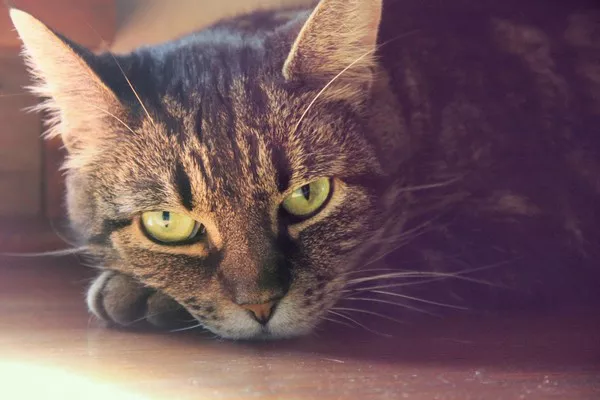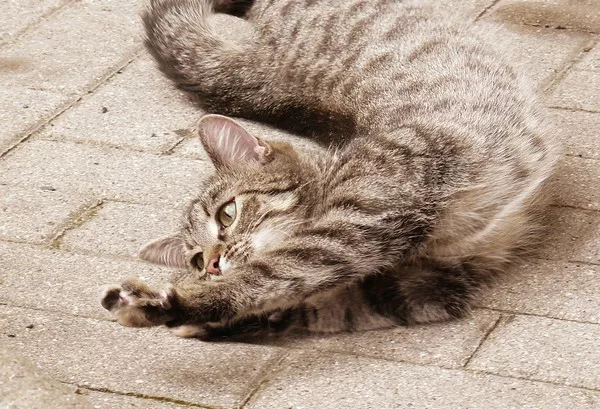Cat boarding, the practice of placing a cat in a boarding facility or kennel when owners are away, is a common solution for pet care. However, it raises important questions about the well-being of the feline guests. This article explores whether cat boarding is stressful, examining the factors that contribute to stress, the ways to mitigate it, and the signs of stress in cats. By understanding these aspects, cat owners can make informed decisions and ensure their pets’ comfort and safety.
Understanding Cat Stress
Stress in cats is a significant concern because it can affect their health and behavior. Understanding what stress is and how it manifests in cats is the first step in addressing the issue.
What is Stress in Cats?
Stress is the body’s response to any demand or threat, real or perceived. In cats, stress can be triggered by changes in their environment, routine, or social interactions. This response can be acute, short-term stress, or chronic, long-term stress.
Symptoms of Stress in Cats
Cats exhibit a range of symptoms when they are stressed. These can include:
Behavioral Changes: Increased aggression, hiding, excessive grooming, or changes in eating and sleeping patterns.
Physical Symptoms: Vomiting, diarrhea, or a weakened immune system leading to frequent illnesses.
Vocalization: Increased meowing, growling, or hissing.
Elimination Issues: Inappropriate urination or defecation outside the litter box.
Recognizing these signs is crucial for cat owners and boarding facility staff to address and manage stress effectively.
Factors Contributing to Stress in Cat Boarding
Several factors can contribute to stress when cats are boarded. Understanding these factors can help mitigate their impact and create a more comfortable environment for the cats.
Unfamiliar Environment
One of the primary stressors for cats in boarding facilities is the unfamiliar environment. Cats are territorial animals that thrive on routine and familiarity. Being placed in a new setting with unfamiliar smells, sounds, and sights can be overwhelming.
Separation Anxiety
Cats can develop strong bonds with their owners and may experience separation anxiety when left in a boarding facility. This anxiety can manifest as excessive vocalization, refusal to eat, or destructive behavior.
Interaction with Other Animals
Many boarding facilities house multiple pets, which can be stressful for cats, especially those not accustomed to interacting with other animals. The presence of unfamiliar cats or dogs can lead to fear and anxiety.
Lack of Personal Space
Cats value their personal space and need areas where they can retreat and feel safe. In a boarding facility, limited space and the constant presence of other animals and people can make it difficult for cats to find a quiet, secure spot.
Change in Routine
Cats are creatures of habit, and any disruption to their daily routine can cause stress. Boarding facilities have their own schedules for feeding, cleaning, and playtime, which may differ significantly from what a cat is used to at home.
See Also: Can Calico Cats and Dogs Eat Eggs?
Mitigating Stress in Cat Boarding
While some level of stress is inevitable, there are several strategies that boarding facilities and cat owners can employ to minimize it and create a more comfortable experience for the cats.
Choosing the Right Boarding Facility
Selecting a reputable boarding facility with a good track record of caring for cats is crucial. Key factors to consider include:
Cleanliness: A clean environment reduces the risk of illness and creates a more pleasant atmosphere.
Staff Expertise: Trained staff who understand feline behavior and can recognize signs of stress are essential.
Space and Enrichment: Facilities that provide ample space, hiding spots, and environmental enrichment (such as toys and climbing structures) help keep cats engaged and relaxed.
Health Protocols: Ensuring that the facility requires up-to-date vaccinations and has protocols in place to prevent the spread of diseases.
Preparing Your Cat for Boarding
Preparation can make a significant difference in how well a cat adjusts to boarding. Steps to take include:
Familiarization Visits: If possible, take your cat to visit the boarding facility before their stay. This helps them become familiar with the environment and staff.
Comfort Items: Bring items from home, such as a favorite blanket, toy, or piece of clothing with your scent, to provide comfort and familiarity.
Feeding Routine: Provide the boarding facility with detailed instructions about your cat’s feeding schedule and preferences to maintain consistency.
Gradual Adjustment: If your cat has never been boarded before, consider short stays or daycare visits to help them acclimate gradually.
Managing Stress During Boarding
Boarding facilities can adopt practices to manage and reduce stress in their feline guests:
Quiet Areas: Designate quiet areas away from high-traffic zones where cats can retreat and relax.
Regular Interaction: Ensure cats receive regular, gentle interaction with staff to provide comfort and reduce loneliness.
Monitoring: Continuously monitor the cats for signs of stress and adjust care plans as needed.
Environmental Enrichment: Provide toys, scratching posts, and climbing structures to keep cats mentally stimulated and physically active.
Signs of Stress in a Boarded Cat
Even with the best preparations, some cats may still experience stress while boarded. Recognizing the signs of stress is essential for prompt intervention and care.
Behavioral Changes
Cats may exhibit various behavioral changes when stressed, including:
Hiding: Seeking out hidden, secluded spots and staying there for extended periods.
Aggression: Increased aggression towards staff or other animals, including hissing, growling, or swatting.
Over-Grooming: Excessive grooming or self-mutilation, leading to bald spots or sores.
Physical Symptoms
Physical symptoms of stress can include:
Loss of Appetite: Refusing to eat or drink, leading to weight loss and dehydration.
Vomiting and Diarrhea: Stress can disrupt a cat’s digestive system, causing gastrointestinal issues.
Frequent Illness: A weakened immune system due to stress can make cats more susceptible to infections and illnesses.
Vocalization and Elimination Issues
Stress can also lead to:
Excessive Vocalization: Increased meowing, yowling, or other vocalizations, often indicating distress.
Inappropriate Elimination: Urinating or defecating outside the litter box, often as a response to anxiety or fear.
Addressing Stress in Boarded Cats
If signs of stress are observed, it’s essential to address the issue promptly to ensure the cat’s well-being.
Communicate with the Boarding Facility
Maintain open communication with the boarding facility staff. Inform them of any specific needs or preferences your cat has and ensure they are vigilant in monitoring for signs of stress.
Visit or Call Regularly
If possible, visit or call the boarding facility regularly to check on your cat. Hearing a familiar voice or seeing a familiar face can be reassuring for your pet.
Consult a Veterinarian
If stress symptoms persist or worsen, consult a veterinarian. They may recommend interventions such as anxiety-reducing medications or pheromone diffusers to help calm your cat.
Alternatives to Cat Boarding
For cats that experience severe stress from boarding, there are alternative options that may be more suitable.
Pet Sitters
Hiring a pet sitter to care for your cat in your home can reduce stress significantly. Your cat remains in a familiar environment, maintaining their usual routine.
In-Home Boarding
Some services offer in-home boarding, where your cat stays in the pet sitter’s home. This can be less stressful than a boarding facility, especially if the sitter has a quiet, cat-friendly environment.
Family or Friends
Enlisting the help of family or friends to care for your cat can be another low-stress option. Your cat may already be familiar with these individuals, reducing anxiety.
Conclusion
Cat boarding can be stressful, but understanding the factors that contribute to stress and implementing strategies to mitigate it can make a significant difference in your cat’s experience. By choosing the right boarding facility, preparing your cat for the stay, and recognizing and addressing signs of stress, you can ensure that your cat remains as comfortable and relaxed as possible during your absence. For those whose cats experience severe stress, considering alternatives such as pet sitters or in-home boarding may be the best option. Prioritizing your cat’s well-being will lead to a happier, healthier pet and greater peace of mind for you as an owner.

























